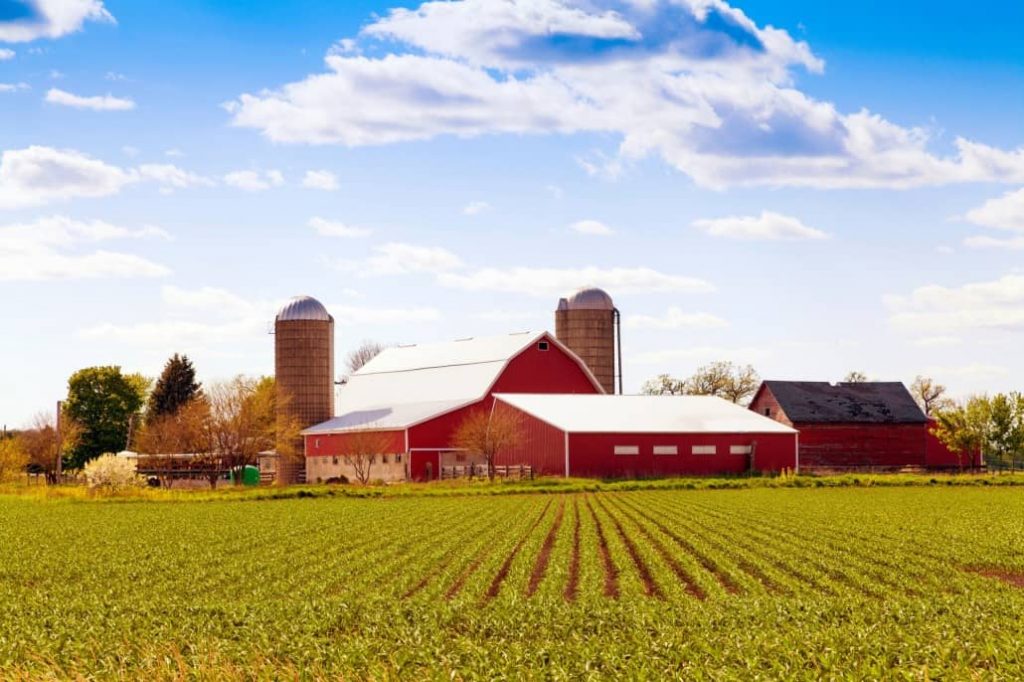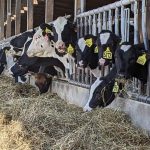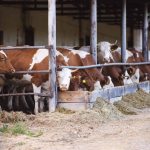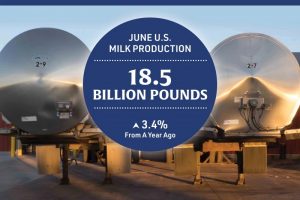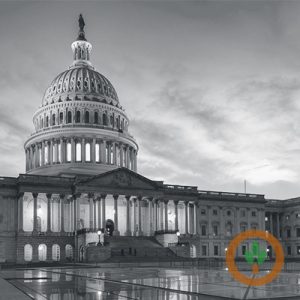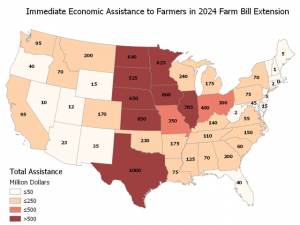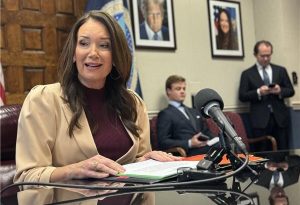
The United States’ food system is facing a crisis eerily similar to what we experienced almost 100 years ago: A corporate-dominated marketplace, strangled by an elite few, that holds farmers and consumers hostage to greed.
At the time, lawmakers responded by creating the first Farm Bill, establishing federal policies to level the playing field. This fall, Congress has an opportunity to tackle these issues anew as it negotiates the 19th Farm Bill.
Since the last Farm Bill in 2018, the cost to feed a family of four on a thrifty food plan has increased 51% while top meat and poultry companies have raked in skyrocketing profits. This is not inevitable — and it is not a mistake.
Big Agriculture has turned the food system into a cash cow for the powerful few by undermining small farmers and encouraging operators to “get big or get out.” The Farm Bill, which began as seminal New Deal social safety net legislation, has become corporate welfare, plain and simple.
If bad policy decisions got us into this mess, good policies will get us out. America’s farmers, consumers and the environment need a fair Farm Bill for all.
A fair Farm Bill stops mega-mergers. Decades of lax antitrust enforcement has created a food system defined by consolidation. In 2022, the largest four companies in each sector controlled more than 85% of the market for beef, 70% for pork, 69% for groceries, and 54% for poultry. Just three dairy cooperatives account for 83% of all milk sales. This level of control gives companies the power to decide the standards, prices and values under which our food is produced.
Thankfully, there is substantial political pushback; in a rare display of bipartisanship, support for reining in Big Ag’s power has united the Biden administration and Congressmembers on both sides of the aisle.
A fair Farm Bill gives sustainable, humane farmers a fair shot by halting new and expanding factory farms. Factory farms are the instrument of Big Ag’s control; a single operation can displace dozens of smaller farms. There are at least 1,157 more large factory farms today than when the last Farm Bill was passed just five years ago (and this is likely an underestimate). In Iowa, home to more than double the number of large factory farms of the next highest state, nearly 90% of the state’s hog farms shuttered in the 35 years prior to the 2018 Farm Bill due to being unable to compete.
A fair Farm Bill cuts the flow of taxpayer dollars toward Big Ag lobbying. Checkoff programs wherein farmers pay into a fund designed to market their agricultural products have funneled billions into bolstering the biggest players. The majority of the roughly $4 billion paid into the Dairy Checkoff program from 2005 to 2018 promoted export policies that benefited enormous producers but sent milk prices plummeting in volatile international markets. Since 2000, the average U.S. dairy farm has managed to turn a profit just twice.
A fair Farm Bill ensures that federal programs support small and medium-sized farms. Big Ag has hijacked programs, like the Environmental Quality Incentives Program, that pay farmers for climate-friendly practices. Grants from the program include a misguided requirement that 50% of projects fund livestock operations, diverting taxpayer money towards dirty boondoggles like factory farm biogas. The biggest players win while tens of thousands of smaller farmers are sent packing. Instigating funding caps and removing the livestock requirement can help.
The first Farm Bill was crafted to respond to a crisis of corporate consolidation and influence — today’s lawmakers must heed the same call. It’s time to pass a fair Farm Bill for all.
Rebecca Wolf is Senior Food Policy Analyst at the national advocacy group Food & Water Watch. This column was produced for Progressive Perspectives, a project of The Progressive magazine, and distributed by Tribune News Service.
